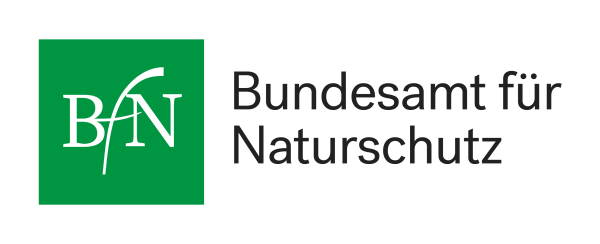(Further) Education for Natural Climate Protection – (Weiter-)Bildung für den Natürlichen Klimaschutz (BilNaKlim)
Commissioned by the Federal Agency for Nature Conservation
Intact ecosystems are natural climate protectors. Forests and floodplains, soils and moors, seas and bodies of water, as well as nature-friendly green spaces in urban and rural areas, absorb carbon dioxide from the atmosphere and store it long-term. As part of the Natural Climate Protection Action Program (ANK) of the Federal Ministry for the Environment, Nature Conservation, Nuclear Safety, and Consumer Protection (BMUV)[1], the condition of these ecosystems is to be improved and their climate protection performance strengthened. Only intact ecosystems can protect the climate by storing CO2 long-term, help us brace against the impacts of climate change, and counteract biodiversity loss[2]. To reach as many target groups as possible and motivate them to take action, educational work for natural climate protection is promoted in Action Field 9 “Research and Competence Building” of the ANK.
Commissioned by the Federal Agency for Nature Conservation (BfN), which coordinates the implementation of the ANK, the Independent Institute for Environmental Issues (UfU) in cooperation with the Institute for Futures Studies and Technology Assessment (IZT) will carry out the project BilNaKlim – (Further) Education for Natural Climate Protection. This project is intended to complement the projects “Naturally: Protecting the Climate! – Interactive teaching and learning materials to promote natural climate protection (NaKlim)“[3] und „ Climate Campus (Klima-Campus)[4] – a digital learning space for natural climate protection” in order to strengthen the professional development of those who ultimately carry out educational work with various target groups.
The goal of BilNaKlim is to develop and conduct further education programs aimed at educators, teachers, and other pedagogical professionals in both school and non-school settings. We aim to empower and motivate at least 1,000 individuals from this group to incorporate educational offerings on “Natural Climate Protection” into their teaching activities. To achieve this, we will:
- Prepare existing offerings and materials on Natural Climate Protection, with particular focus on the NaKlim and Klima-Campus projects;
- Develop further education modules for educators in early childhood, primary, and secondary levels 1 and 2;
- Conduct these further education formats, which include self-learning phases and also serve to support participant learning, networking, and assistance;
- Evaluate this project to make the results publicly accessible for third parties and to develop ideas on how to ensure the sustainability of the further education initiatives. For long-term integration, it is desirable for the developed modules to be recognized as training elements in relevant training programs for multipliers.
Through transformative educational work, we address the interface with Education for Sustainable Development (ESD) and aim to foster individual competencies that enable learners to recognize the complex interrelationships between the ecological, economic, social, and cultural dimensions of (un)sustainable development in the global context. We strive to engage in holistic solutions for current and future challenges towards a good life for all[5]. Educational work is typically carried out by educators, teachers, and other pedagogical professionals in both school and non-school settings. However, there are evidently significant gaps in the corresponding qualification of these educators regarding ESD[6] and consequently also concerning education for Natural Climate Protection, which we aim to address through our project BilNaKlim.
[1] https://www.bmuv.de/natuerlicher-klimaschutz
[2] https://www.natuerlicher-klimaschutz.de/
[3] https://www.siegmund-se.de/projekte
[4] https://klimacampus.org/
[5] https://www.ufu.de/transformative-bildung/
[6] Brock/Holst (2022): Schlüssel zur Nachhaltigkeit, S. 14
Laufzeit
04/2024 – 11/2026
Kooperationspartner
Institute for Futures Studies and Technology Assessment gemeinnützige GmbH (IZT)

Gefördert durch
Federal Agency for Nature Conservation – Bundesamt für Naturschutz (BfN)

Kontakt
Larissa Donges
Swenja Rosenwinkel



